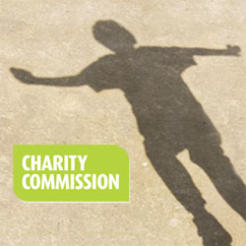Gift aid should be withdrawn from charities which have not filed their accounts, according to the Charity Commission's submission to Lord Hodgson's Charities Act review.
The measure is the favoured sanction by the Commission out of a number of possible punishments for charities which do not take their responsibility to submit their accounts for public viewing on the register seriously.
The Commission said that the tax relief withdrawal would be a preferred alternative to the existing sanction of criminal prosecution, which it says is "disproportionate except in the most extreme cases of default or where linked with other serious criminal behaviour".
However the Commission was keen to express that the act of filing accounts is a compulsory and necessary measure: "We consider that complying with this filing requirement is a key trustee duty. We would like to see a climate in which failure to comply is unacceptable both legally and culturally in the charitable sector."
The Charity Commission recently 'named and shamed' the charity set up by MP George Galloway, Viva Palenstina, a common route taken when accounts have not been filed on time. However it said that this approach, designed both as a nudge to the perpetrating charity and as a warning to fellow charities, "has its limitations":
"For charities with an active stakeholder community or seeking new funding then ‘naming and shaming’ can be a powerful sanction. But for those with a limited or distant relationship with the public are less influenced by it," it said in its submission to Lord Hodgson.
Suspension from the register would be similarly dependent on its relationship with stakeholders, the Commission said.
A sliding scale of fines dependant on income, however, would prove an effective incentive to charities to file their accounts, accepted the Commission. It pointed to the example that some charitable companies had submitted their accounts to Companies House, which sets fines for lateness, but not to the Commission in the past.
But gift aid withdrawal, in combination with a suspension from the register, was mooted as the "strongest option" for an appropriate sanction, providing taxpayers with a clear response to failure to be transparent. Although it was noted that it would require a change to tax law and would not be an appropriate sanction for charities which do not rely on charitable donations.
The Charity Commission response is one of 150 to Lord Hodgson's Charities Act review which asks key questions relating to the legislation and regulations affecting the charity sector. The public consultation closed for responses on Monday, with 110 organisational and 40 individual responses.
Sub-regulation and independence
The Commission answered a number of questions laid down by Lord Hodgson, including those regarding the effectiveness of the Commission itself. The Commission pointed in the main to its recent strategic review conducted following the coalition government's cost cutting measures, which have seen the Commission's statutory budget reduced by around one third, to answer the review's questions.
The Commission underlined that its independence from government "underpins the nature of charity and the presence of a regulator which is independent of government as well as being independent of the sector supports this". Because of this, the Commission is not in support of a system of sub-regulation, as mooted by the likes of the FRSB and IoF in response to the review.
"Our view is that there is insufficient evidence that a different model would work better," the Commission concluded.










